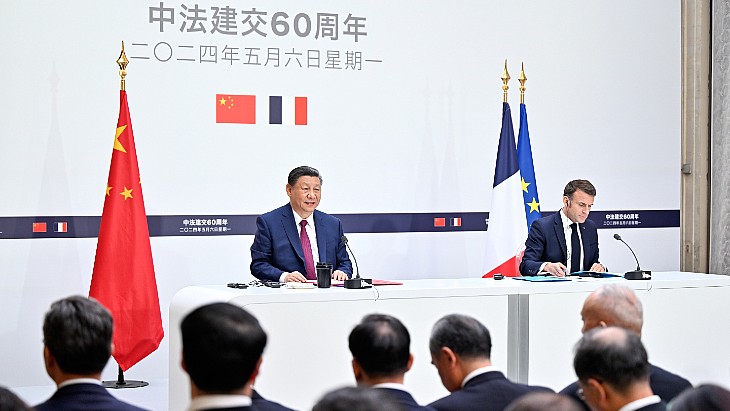South Korea forms SMR Alliance
.jpg)
Business agreements were signed between the participating organisations at a launch ceremony held in Seoul on 4 July.
The SMR Alliance includes 11 government and public institutions, including the Ministry of Trade, Industry & Energy (MOTIE), Korea Hydro & Nuclear Power (KHNP) and the Korea Energy Economics Institute, as well as 31 companies, including GS Energy, SK Inc, Samsung C&T, Daewoo E&C and Doosan Enerability.
The SMR Alliance plans to establish SMR business strategies and establish an institutional foundation with the goal of fostering public and private capacities to strengthen national competitiveness in the SMR field. To this end, it operates working groups by sector, such as a business development working group and an institutional improvement working group.
The alliance plans to prepare suggestions for business models and institutional improvements by the first half of 2024 and aims to promote the launch of the SMR association and actively support the creation of the SMR ecosystem from the first half of next year.
Speaking at the launch event, Minister of Industry Lee Chang-yang said: "The public and private sectors must jointly respond to the changes that SMRs will bring. Companies will prepare business plans that the people can trust, and the government will spare no policy support to foster the SMR industry."
"The private sector, the government, and public institutions gathered together to take a meaningful first step," said Donghyun Jang, Vice Chairman of SK Holdings, who has been appointed as the SMR Alliance's first chair. "We will try in many ways. We will join forces to secure SMR leadership in the global market, including supply chain configuration and business participation."
"Our efforts can only go so far, unless the government revises energy-related laws and outlines medium to long-term policies to include nuclear energy in the country's power plan," he was quoted as saying by The Korea Times. "Measures are needed for strong local players to find a standing in the global supply chain for sustainable growth."
In April, US nuclear innovation company TerraPower announced it had signed a collaboration agreement with SK and KHNP supporting the demonstration and commercialisation of its Natrium SMR and integrated energy system. SK Inc and SK Innovation - both affiliates of SK Group, Korea's second-largest conglomerate - invested USD250 million in TerraPower in August last year during an equity raise of USD830 million, the largest private raise among advanced nuclear companies to date.
In August last year, MOTIE signed a memorandum of understanding with KHNP, Doosan Enerbility and nuclear energy equipment and materials manufacturers with the aim of revitalising South Korea's nuclear industry. The MoU aims to improve the competitiveness of the nuclear industry ecosystem through shared growth, working together to contribute to carbon neutrality, responding to the energy crisis and stabilisation of power supply.
Korea's SMART (System-integrated Modular Advanced Reactor) is a 330 MWt pressurised water reactor with integral steam generators and advanced safety features. The unit is designed for electricity generation (up to 100 MWe) as well as thermal applications, such as seawater desalination, with a 60-year design life and three-year refuelling cycle.
While the basic design is complete, development has been stalled by the absence of any orders for an initial reference unit. Developed by the Korea Atomic Energy Research Institute (KAERI), SMART received standard design approval from the Korean regulator in mid-2012. KAERI had planned to build a demonstration plant to operate from 2017.









_88592.jpg)
_66488.jpg)

